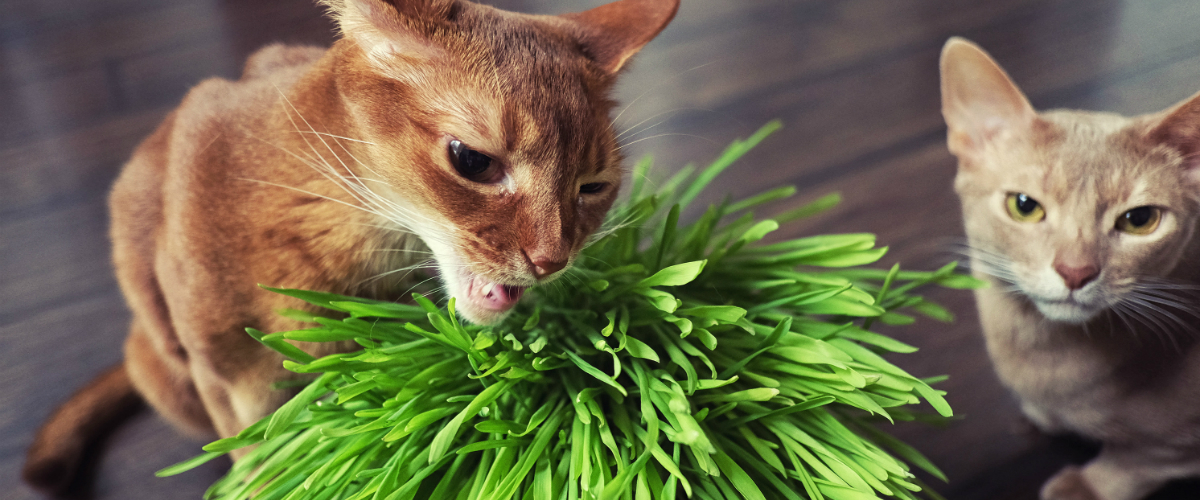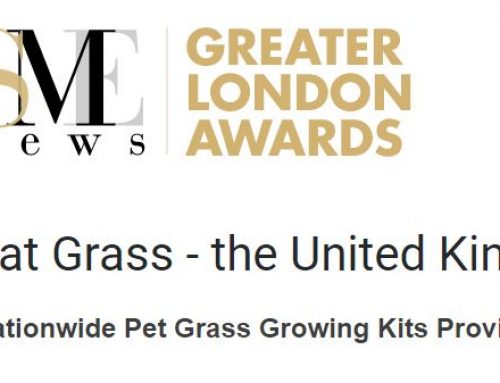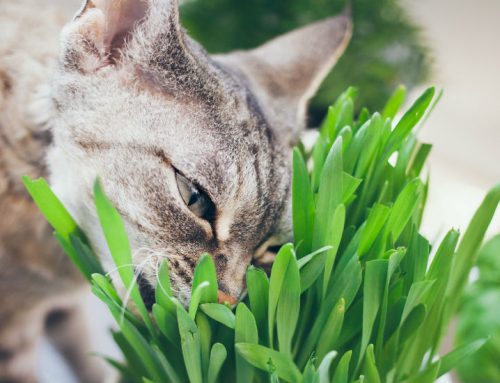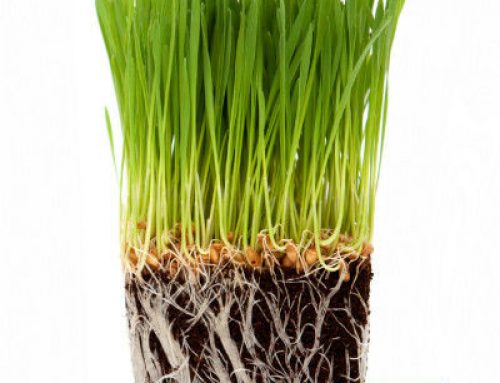There are hundreds of websites, blogs and you tube videos all attempting to explain “why does my cat eat grass?”. With so many myths, misinformation and differing opinions how do you separate fact from fiction? Who do you trust? Having waited 11 years since their last report, UC Davis School of Veterinary Medicine conducted research in to plant eating habits in domestic cats. We explain the facts, dispel the myths and advice provided by the team responsible for the research.
The research conducted by Benjamin L. Hart, Lynette A. Hart and Abigail P. Thigpen is significant as it is the first scientific research report into the “Characterisation of plant eating in cats”. The report was presented at the annual Congress of the International Society for Applied Ethology in Bergen, Norway and published in the Scientific Journal in August 2019.
Past Explanations
The issue with previous explanations as to why cats eat grass, is that it is based on two things. 1. general speculation and theories as to why cats would want to eat grass. and 2. the 2008 research on grass eating in dogs. The research was accredited to eating habits of wolves, with a single reference to cats. The eating habits of cougars in Utah. The explanation given in the 2008 report was based on research in primates. In the past explanations for cats eating grass have been:
- Missing nutrients
- Being unwell/ the need to vomit
- Older cats teaching younger cats how to eat grass
The 2008 report did state that more research into domestic cats was required and in 2019 they have delivered as promised with surprising results.

The Research
The research, “Characterization of plant eating in cats, Benjamin L. Hart, Lynette A. Hart and Abigail P. Thigpen” is significant as it is specific to domestic cats. The web based survey of cat owners, received 2,296 returns. Excluding cats that are indoor without access to plants, and cats that are outdoors where owners cannot see if they are eating plants, the main inclusion criterion was that the owner had to have been able to see the cat’s behavior 3 or more hours a day. The resulting 1,021 returns revealed:
The Data
- 71% of cats had been seen eating plants at least 6 times
- 61% over 10 times and 11% never eating plants
- Comparing cats seen eating plants at least 10 times with those never seen eating plants, there were no differences in age range, neuter status,
source or number of cats in the household - Of cats seen eating plants at least 10 times (71%), 67% were estimated to eat plants daily or weekly.
- When asked about how their cat seemed to feel prior to eating plants, 91% of respondents said their cat almost always appeared normal beforehand
- Vomiting – 27% reported the cat frequently vomiting after eating plants
- Among young cats, 3 years of age or less, 39% engaged in daily plant eating
- 27% of cats 4 years or older engaged in daily plant eating
- Percent of younger cats showing no signs of illness prior plant eating was similar to older cats
- Vomiting – 27% reported the cat frequently vomiting after eating plants; of which
- Just 11% of the younger cats were observed to frequently vomit after eating plants compared to a significantly higher 30% of
older cats
Considerations
It’s great to receive scientific insight into why cats eat grass but the following considerations should be taken into account:
Pros
- Research report is species specific. Research reported on observed behaviour in Domestic cats.
- Report saw a significant increase in participants. 28 in 2008 and 1021 in 2019
- The innate behaviour explanation for cats eating plants is based on observations in the behaviour and Scat of domestic cats common ancestor, Felidae – Big Cats, not primates
Cons
- Owners only observed for their cats for 3 hours a day meaning the number of cats engaging in plant eating may be significantly higher than reported
- No reference is made to the types of plants made available – plant eating may have been significantly higher if suitable plants were available
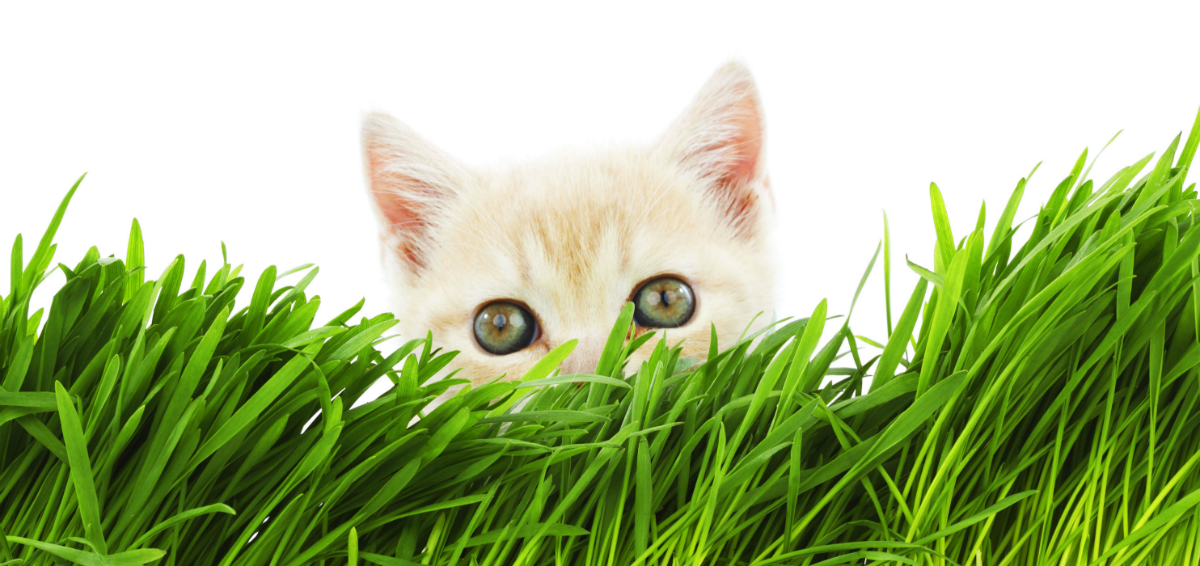
What do we take away from this – Why does my cat eat grass?
Let’s dispel the myths first with these new insights:
- The findings do not support the myth that young animals ‘learn’ plant eating from older ones
- Plant eating is found in equal measure amongst cats of all age range, neuter status,
source or number of cats in the household - Younger cats do eat plants more frequently and are less likely to vomit afterwards
- The common explanation given for plant eating in cats; that they feel ill beforehand and plant eating induces
vomiting, is incorrect
Parasitic Load (Amount of worms in the intestines)
As the researchers see it your cat eats grass because it has an innate behaviour, inherited from its wild carnivore ancestors (Big Cats) to remove worms from its intestines and maintain a healthy parasitic load (amount of worms in the intestines).
“Studies reveal that non-digestible plants purge the intestinal system of helminthic parasites (worms). Given that virtually all wild carnivores carry an intestinal parasite load, regular, instinctive plant eating would have an adaptive role in maintaining a tolerable intestinal parasite load, whether or not the animal senses the parasites.
The explanation offered by the researchers is that “regular plant eating by domestic carnivores (cats) is a reflection of an innate predisposition (natural behaviour) of regular plant eating by wild ancestors”. This “is supported by numerous reports of wild carnivores eating plants, as shown mostly by the non-digestible grass and other plant parts seen in their scats (cat pooh).
So what do the researchers recommend?
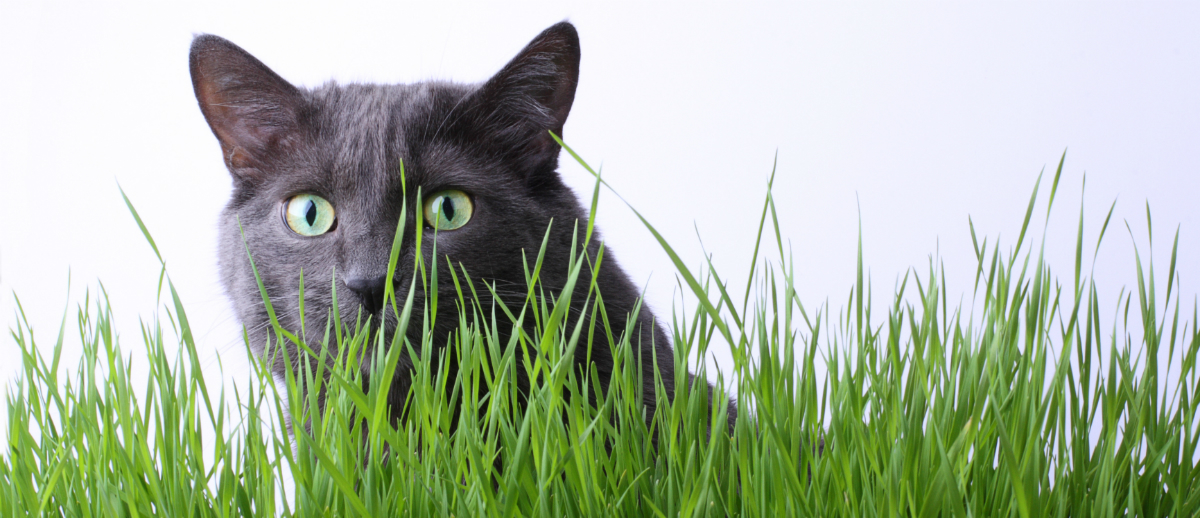
Why Does My Cat Eat Grass?
The take away from this is that eating grass isn’t a signal that your cat is sick, more importantly it’s an instinctual behavior that even the most diligent owner won’t be able to stop. The solution the research team suggests, “Buy or cultivate some indoor grass for your pets to chew on. This will give them a chance to exercise this innate behavior with a safe source of nonpoisonous plant life”.
Domestic Cats eat cat grass as it is an essential natural behaviour providing a healthy solution to parasites.

Ready Grown Cat Grass – Overnight Delivery!
Fresh, organic, soil grown Cat Grass delivered to your door. My Cat Grass uses only 100% organic certified seeds from British farmers! Our Ready Grown Cat Grass – Overnight Delivery is suited to our customers who wish to receive their cat grass as soon as possible. Included in the box are 4 x 9 cm x 9 cm x 10 cm pots of organically grown cat grass using soil association approved soil. Also included in every Ready Grown Cat Grass box is a premium “surprise” treat or toy carefully selected each month from one of our preferred partners.
£19.99Add to basket


